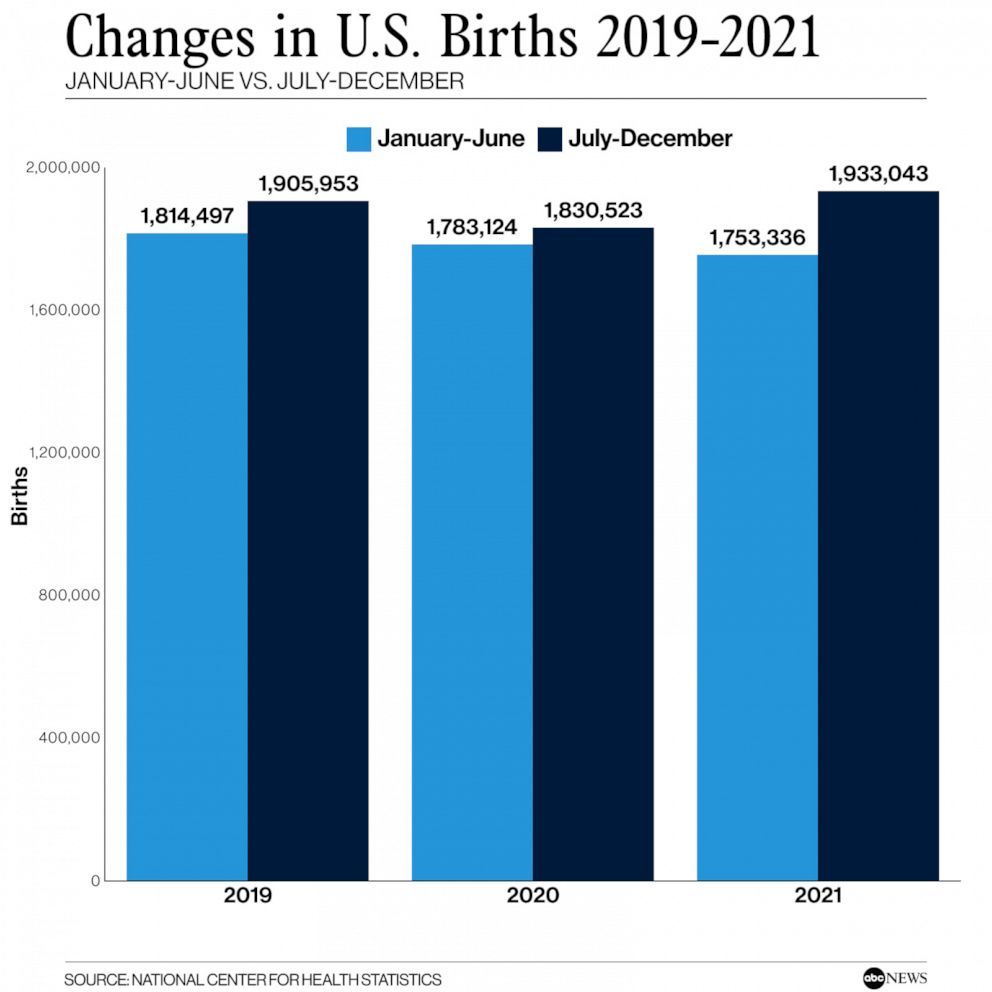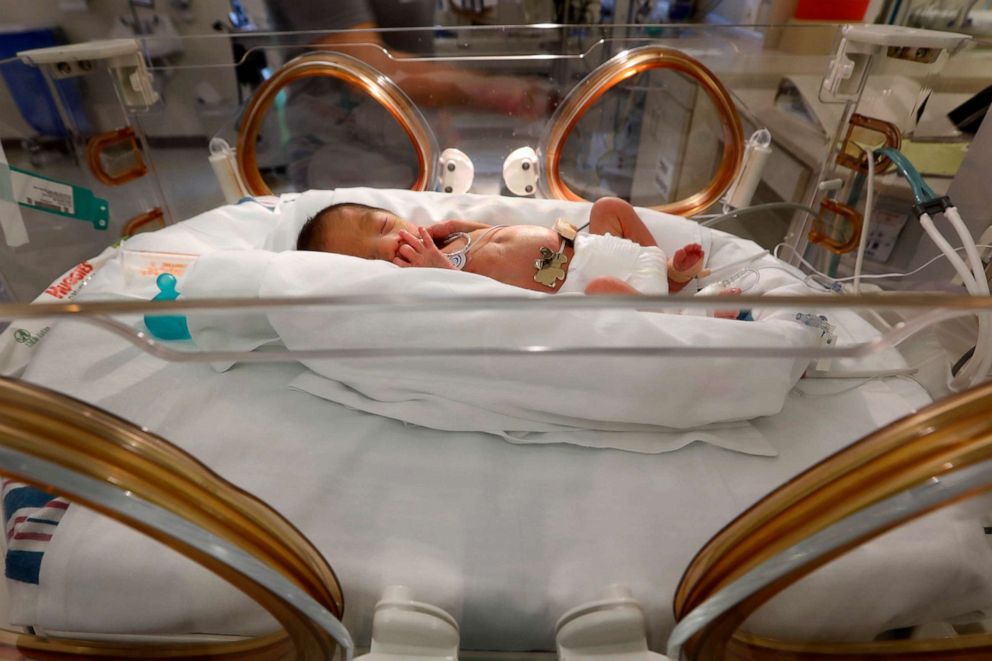Second half of 2021 sees 1st increase of births since pandemic: CDC
The second half of 2021 saw a 4% increase in births compared to 2020.
After months of declining births during the COVID-19 pandemic, the number of babies born may be rebounding in the United States, a new federal report finds.
The report, published early Tuesday by the Centers for Disease Control and Prevention, found there was a 4% increase in births for the second half of 2021 compared to the same period the year before.
Between July 2021 and December 2021, 1,905,953 babies were born compared to 1,830,523 babies born from July 2020 to December 2020, according to the CDC.
This marks the first increase in births seen since 2014, the researchers noted.
For the report, the authors looked at birth certificate data from the CDC's National Center for Health Statistics, including final birth counts from 2019 and 2020, as well as provisional data for 2021.

Results showed that, when comparing 2020 counts to those of 2019, births declined in both the first and second halves of the year at 2% and 5%, respectively.
Additionally, compared to the first half of 2020, there was a 2% decrease in births in the first half of 2021.
January 2021 and February 2021 saw the biggest declines in births, at 9% and 2%, respectively.
Meanwhile, July 2021 to December 2021 recorded increases in births between 1% and 7% in comparison with July 2020 to December 2020. November 2021 and December 2021 saw the largest increases, at 6% and 7%, respectively, data showed.
Researchers also looked at changes in births based on the race and ethnicity of the mother.
During the first year of the pandemic, all races and ethnicities saw decreases in 2020 compared to the same period in 2019. The same trend continued in the first half of the year in 2021, with declines of between 2% and 8% for women in nearly all groups.
However, for the second half of 2021, increases were seen across multiple groups. Hispanic women saw the largest increase in births at 6%, followed by white women at 4% and Asian women at 3%, the report found.
Other groups -- including Black women, American Indian/Alaskan Native women and Native Hawaiian and other Pacific Islander women -- did not see significant changes in the number of births during the second six months of 2021.
The report also looked at changes in the number of births by state. Sixteen states and the District of Columbia recorded a decline in births in the first half of 2021 compared to the first half of 2020, while only four states saw increases, the CDC report found.
Similarly, when comparing the first six months of 2019 to the same period in 2020, the number of births declined for 20 states.

However, in the second half of 2021, births increased for 39 states compared to the second half of 2020, with the largest increase seen in Connecticut at 10%.
Other significant increases were seen in New Hampshire at 9%, as well as Florida, Massachusetts, Rhode Island and Vermont at 8% each. Declines were seen in only two states: Arizona and New Mexico.
The authors note that despite the increase in births in 2021 compared to the year prior, the overall number -- 3,659,289 -- was still 2% lower than the 3,747,540 recorded in 2019.
"The difference in trends observed between the first two months of the year and the last seven months suggests that the downward trend seen in 2020 through the beginning of 2021 may have abated," the authors wrote. "Ongoing evaluation of trends in births by month will monitor whether the changes observed for the second six months of 2021 will continue into the next year."
The CDC did not immediately return ABC News' request for comment.




